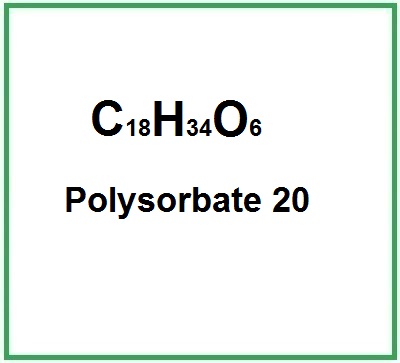![]() Polysorbate 20
Polysorbate 20
Rating : 8
Polysorbate 20 is a chemical compound used as a food additive (E432) and in the cosmetic sector with an emulsifying, fruit or vegetable coating, stabiliser, solubiliser, flavour dispersant, wetting agent function.
Both Polysorbate 20 and Polysorbate 80 are classified as generally safe by the American Food and Drug Administration (FDA) (1).
P... (Read the full Tiiip)
7 pts from A_Partyns
| Evaluate | Where is this found? |
| "Polysorbate 20 studies" about Polysorbate 20 Review Consensus 7 by A_Partyns (12948 pt) | 2019-May-05 18:53 |
Polysorbate 20 and Polysorbate 80 have shown activity in contrast to the biotype Escherichia coli o104: H4, the most deadly of ever reported Escherichia coli (1).
It is a non-ionic surfactant commonl ...
| Read the full Tiiip | (Send your comment) |
| "Description" about Polysorbate 20 Review Consensus 7 by A_Partyns (12948 pt) | 2019-May-05 18:57 |
Polysorbate 20 is a chemical compound used as a food additive (E432) and in the cosmetic sector with an emulsifying, fruit or vegetable coating, stabiliser, solubiliser, flavour dispersant, wetti ...
| Read the full Tiiip | (Send your comment) |
Read other Tiiips about this object in __Italiano (2)
Component type: Chemical Main substances: Last update: 2023-02-19 19:05:02 | Chemical Risk: |


